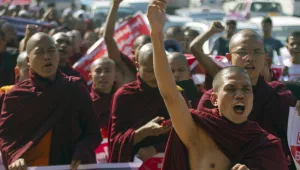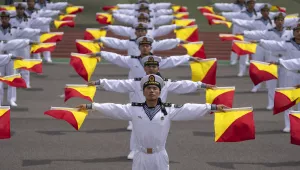This article argues that, although China has been a mostly reactive power for the past fifty years, its leaders have begun to articulate a decidedly alternative vision of the underlying principles of international relations. Â In nearly every significant aspect, this emerging Chinese approach to world order is diametrically opposed to the prevailing American view of international statecraft. Â This strategic world view has emerged gradually and in an ad hoc fashion over the past four years. Â But most important, it has emerged primarily as an inadvertent consequence of China''s concern with the Taiwan problem. Â It touches the most essential bread-and-butter issues of international politics: Â How should international relations be organized? Â Who should make decisions about global security? Â What is the appropriate role of military force? Â Who should decide international law? Â What is the meaning of globalization? Â What should be the role of the United Nations? Â Are alliances legitimate? Â The longer the Taiwan problem persists, therefore, the more likely that these strategic ideas will become more systematic -- and, thus, institutionalized -- in Chinese foreign policy. Â Over time, a single cause, the Taiwan problem, may give birth to a consistent and institutionalized set of Chinese strategic ideas that will challenge the predominant American approach to issues that lie at the foundations of international politics. Â
Article
from
Washington Quarterly
Up Next



